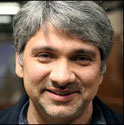Wearing a Niqab or a Veil Is Not a Requirement of Islam

By Tahir Gora
19 Feb, 2015
A federal Judge has turned down former Immigration Minister Jason Kenney's Niqab Ban in Citizenship Oath ceremony.
A Mississauga resident, Mrs. Zunera Ishaq, an immigrant from Pakistan challenged the government's policy.
"I decided to raise my voice so that I can challenge this policy, which was a personal attack on me and Muslim women like me," said Zunera to the National Post.
Federal Judge Keith Boswell said that the government's own regulations require citizenship judges to administer the oath with "dignity and solemnity, allowing the greatest possible freedom in the religious solemnization or the solemn affirmation thereof."
But the advocates, including a federal judge, for the right of Muslim women to wear veils ignore one basic reality: This is not about Islamic faith.
If wearing the veil was a faith-oriented right, every Muslim woman should be striving for it. But most Muslim women -- in Islamic countries and in the West -- don't practice this tradition, which was traditionally imposed by Muslim men.
The Quran doesn't require Muslim women to cover their faces. Women in Prophet Muhammad's times were allowed to work with open faces.
Muslims' most sacred pilgrimage known as Hajj in Saudi Arabia doesn't require women to cover their faces. Rather, women are not allowed to cover their faces during the Hajj Pilgrimage.
The vast majority of Muslims think that the traditional veil is clearly a mark of separation, and consider it an element of the fanatical side of Islam.
If the majority of Muslims call the veil tradition an "attempt at separation" (not only in the west but in their own Islamic countries, too), then insistence of putting veil or niqab on faces seems a stubborn part of some community members.
That tiny percentage of stubborn members of Muslim community is reinforcing a wrong perception of Islam on one hand and causing unnecessary tension between government and Muslim community on the other hand, and also between society at large..
There is a need to understand the difference between being separate and being moderate. There is also a need to understand that most Muslim women who don't wear these emblems are still followers of Islam.
The conclusion of this debate should be that wearing a particular item of dress should be a person's choice. But showing yourself -- your identity -- should be a choice made by society.
Also, niqab or veil is not a part of any dress. It's a mask.
If a woman wants to show a hardcore Islamic religious symbol, she can be modest and wear a headscarf in Arabic tradition or Dupata in South Asian tradition.
When a woman puts on a niqab (a head-covering with a slit for the eyes), a burka (a full-body garment that hides the eyes as well) or a face veil, then she must grant society the right to decide whether that is appropriate to wear in public.
That's why Prime Minister Stephan Harper has said rightly, "I believe, and I think most Canadians believe that it is -- it is offensive that someone would hide their identity at the very moment where they are committing to join the Canadian family".
It seems obvious that a secular society can't accept citizens concealing their identity.
Tahir Gora is a Canadian-Pakistani and the Director of the Canadian Thinkers’ Forum, a member of the Coalition of Progressive Muslim Canadian Organizations.
Source: http://www.huffingtonpost.ca/tahir-gora/niqab-canada_b_6712172.html

No comments:
Post a Comment